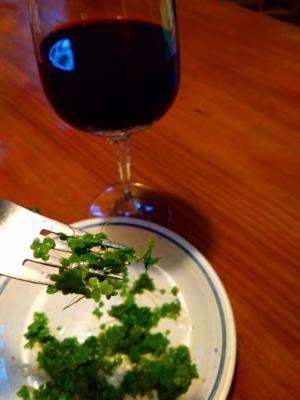Duckweed for dinner?

The Telegraph carried an interesting report by Anne Gulland about duckweed becoming a new superfood (June 13, 2019; https://www.telegraph.co.uk/news/2019/06/13/duckweed-bane-pond-owners-set-become-superfood/).
The nutritional value of various species of duckweed (Lemnaceae) has long been known. However, what is new is an initiative, reported on by "The Telegraph", to apply to the European Food Safety Authority (EFSA) to have Lemnaceae classified as a novel food. The application is to be lodged shortly by researchers from Wageningen University in The Netherlands.
This is great news: Duckweeds have excellent nutritional benefits, and their protein content especially makes them of interest for human consumption. Indeed, Lemnaceae are routinely being consumed as a healthy vegetable and/or food ingredient in major parts of the world (but not in the EU). I fondly remember the pizza with a sprinkling of fresh Lemna gibba which I enjoyed on numerous occasions. L. gibba, with the pronounced air-pockets in its fronds, gives a lovely popping sensation in the mouth, a little bit like an Aero-bar, but then healthier.
If the application to the EFSA is successful, the culturing of, trade in, and use of Lemnaceae biomass in Europe will be much invigorated. The culture of Lemnaceae for human consumption will, however, need to be carefully considered to avoid the public being exposed to water-borne diseases and or contaminants. Thus, the duckweed from a local drainage ditch is probably not a recommended vegetable! Conversely, the work by the EPA-funded Newtrients team at UCC is of major interest as it pioneers growth of Lemna minoron food-grade wastewater, i.e. the clean wastewater left after the production of cheese, yoghurt, milk-powder and other dairy products. Thus, a vision arises of the integrated, sustainable production of dairy produce and vegetables.
NEWTRIENTS
Novel Eco-Sensitive Wastewater Treatment Recovering Dairy Industry Effluent Nutrients
Contact us
